This post may contains affiliate links. Read our full disclosure here.
Spotting red flags when hiring restaurant sommeliers is essential if you want to build a successful wine program. The right sommelier can transform your restaurant’s wine experience, while the wrong hire can cost you customers, damage your reputation, and drain your finances. Red flags when hiring restaurant sommeliers are often subtle but ignoring them leads to significant problems down the road. A sommelier isn’t just another staff position—they’re the face of your wine program and a critical component of your restaurant’s identity.

In my years working with restaurants, I’ve seen countless hiring mistakes that could have been avoided with proper vetting. The wine world is competitive, and finding someone who combines genuine expertise with hospitality skills isn’t easy. Today, I’m sharing the six most common red flags when hiring restaurant sommeliers that every restaurant owner or manager should watch for during the interview process. These warning signs will help you avoid costly mistakes and find a sommelier who’ll truly complement your restaurant’s vision.
1. Lack of Formal Training or Certification
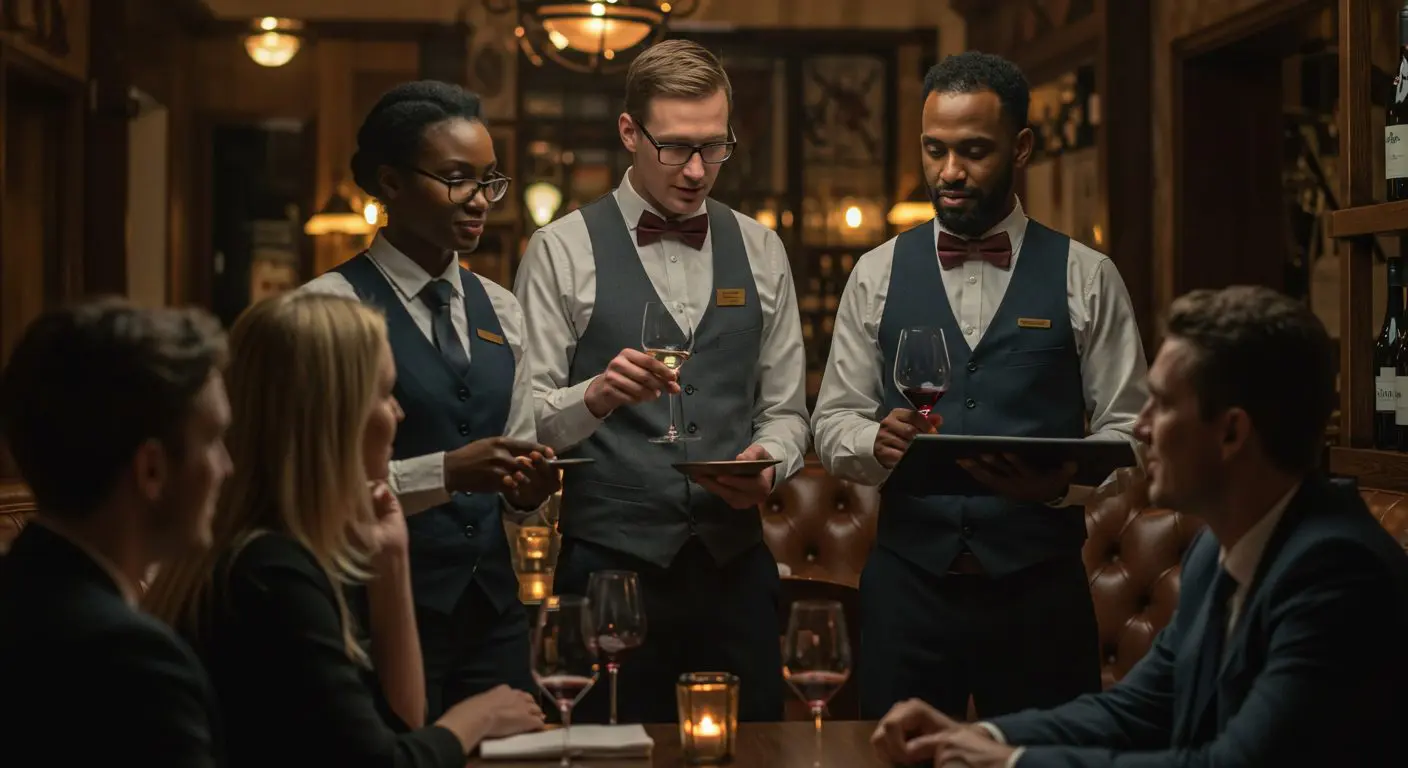
When reviewing candidates for a sommelier position, one of the biggest red flags when hiring restaurant sommeliers is a lack of proper credentials. While passion for wine is important, formal education demonstrates a serious commitment to the craft. A candidate who can’t show certified training may not have the technical foundation needed to build and manage a professional wine program.
The wine industry has established several respected certification paths that provide standardized knowledge. Becoming a certified sommelier requires significant dedication and study. When candidates dismiss the importance of these credentials, they’re often hiding knowledge gaps that will become problematic later.
📌 Signs of a Red Flag:
- No wine certifications or formal education on their resume
- Dismissive attitude toward structured learning
- Knowledge limited to personal preferences and experiences
- General food service background with no wine specialization
✅ Better Indicators:
- Certification from WSET, Court of Master Sommeliers, or equivalent programs
- Demonstrates structured tasting methodology
- Can clearly articulate wine production methods and regional characteristics
- Shows evidence of continuing education
For deeper insight into certification standards, visit the Court of Master Sommeliers: https://www.mastersommeliers.org
2. Weak Communication Skills

The best sommeliers aren’t just wine experts—they’re storytellers and guides who make wine accessible to everyone. A major red flag when hiring restaurant sommeliers is poor communication ability. During interviews, pay close attention to how candidates explain wine concepts. Do they make wine sound intimidating or welcoming? The way they communicate with you mirrors how they’ll interact with your guests.
When I dined at a high-end restaurant last year, the sommelier spoke entirely in technical jargon, making everyone at the table feel uncomfortable asking questions. This created a barrier between us and the wine experience. Great sommeliers understand that their job is to translate wine’s complexity into language that resonates with guests of all knowledge levels.
📌 Signs of Poor Communication:
- Excessive use of technical terminology without explanation
- Condescending attitude toward simple wine questions
- Unable to adjust their communication style for different audiences
- Doesn’t listen actively during conversations
✅ Green Flags to Look For:
- Explains complex wine concepts in approachable, relatable terms
- Demonstrates sensitivity to guest comfort levels with wine
- Shows genuine enthusiasm when sharing wine knowledge
- Asks thoughtful questions before making recommendations
What professional sommeliers actually do goes far beyond mere wine knowledge—they’re communicators who build bridges between your guests and your wine program.
3. Overemphasis on Expensive Wines

A significant red flag when hiring restaurant sommeliers is an unhealthy fixation on luxury wines and aggressive upselling. While high-end bottles certainly have their place, a sommelier who focuses exclusively on expensive wines often fails to serve your broader customer base. During interviews, listen carefully for how candidates discuss wine at various price points.
The wine list should reflect your restaurant’s overall philosophy and price structure. A sommelier who can’t enthusiastically discuss mid-range or value-driven options will alienate many of your guests. The best candidates demonstrate genuine excitement about wines at all price levels and understand how to match wines to customer preferences and budgets.
📌 Red Flags to Watch:
- Primarily discusses high-margin or trophy wines during interviews
- Shows disinterest when conversation shifts to affordable options
- Measures success only by average bottle price sold
- Limited knowledge of good value wines from lesser-known regions
✅ Better Approach:
- Shows equal enthusiasm for wines across all price segments
- Understands how to build a balanced wine program
- Discusses strategies for wine education that build trust with guests
- Can identify hidden gems that offer excellent quality-to-price ratio
4. No Experience with Food Pairings
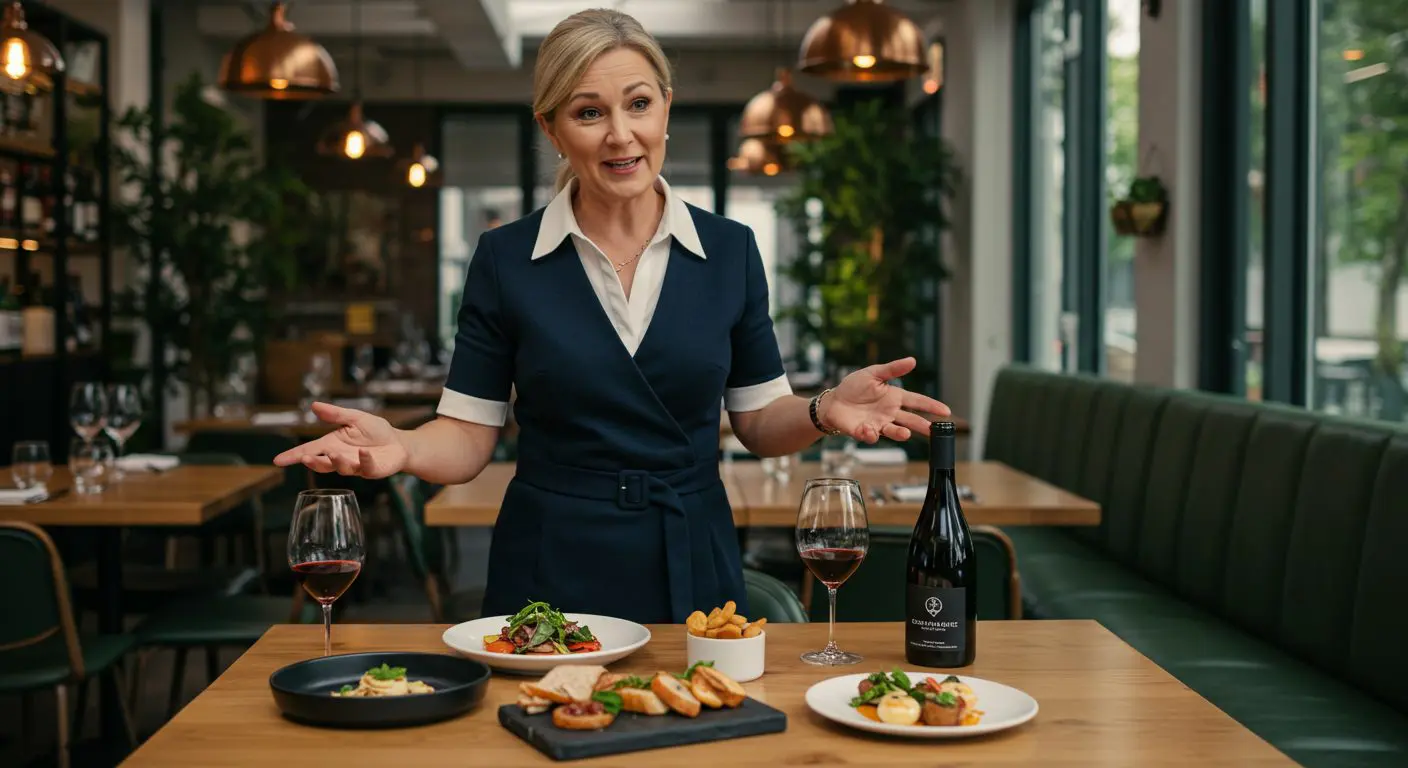
A sommelier who lacks food pairing knowledge represents a serious red flag when hiring restaurant sommeliers. The ability to create harmonious wine and food experiences is fundamental to the role. During interviews, ask candidates to suggest pairings for specific dishes on your menu. Their answers will reveal whether they understand the interplay between flavors or are simply reciting textbook pairings.
Great sommeliers view themselves as an extension of the kitchen team. They collaborate with chefs to create memorable dining experiences and understand how seasonal menu changes affect wine selections. Food and wine pairing fundamentals should be second nature to any qualified sommelier candidate.
📌 Food Pairing Red Flags:
- Unable to articulate why specific wines work with certain dishes
- No experience collaborating with kitchen staff
- Limited pairing vocabulary beyond “red with meat, white with fish”
- Doesn’t consider preparation methods or sauce components
✅ What Makes a Good Sommelier Here:
- Demonstrates nuanced understanding of how flavors interact
- Can suggest multiple pairing options for complex dishes
- Shows flexibility with guest preferences that might challenge traditional pairings
- Discusses how wine selections evolve with seasonal menu changes
5. Poor Cellar Management Skills
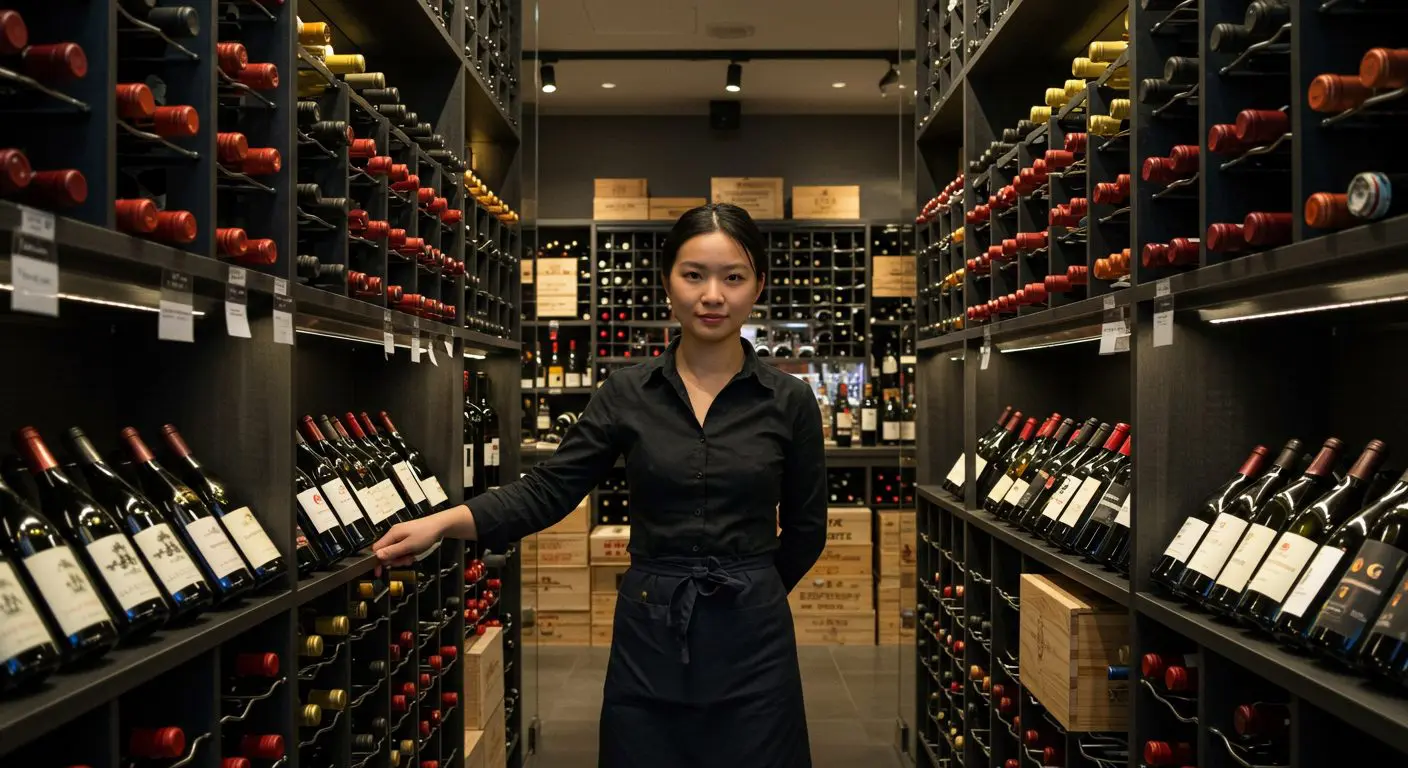
A frequently overlooked red flag when hiring restaurant sommeliers is inadequate inventory management experience. Wine is both a perishable product and a significant financial investment. Sommeliers must demonstrate strong organizational skills and understand how to maintain proper storage conditions. During interviews, ask detailed questions about their inventory tracking methods and storage protocols.
A sommelier who can’t explain their system for wine rotation or doesn’t understand optimal storage conditions will cost your restaurant money through spoilage and mismanagement. Creating a proper wine cellar requires careful planning and consistent maintenance. Sommeliers should have experience with inventory software and understand how to balance stock levels with sales projections.
📌 Red Flag Behaviors:
- Vague answers about inventory tracking systems
- Limited knowledge of proper storage temperatures and conditions
- No experience with wine inventory software
- Unable to explain strategies for managing aging inventory
✅ Signs of a Professional:
- Demonstrates structured approach to cellar organization
- Experience with digital inventory management systems
- Knowledge of proper wine storage parameters (temperature, humidity, light)
- Can discuss strategies for inventory turnover and purchasing efficiency
6. Resistance to Ongoing Learning
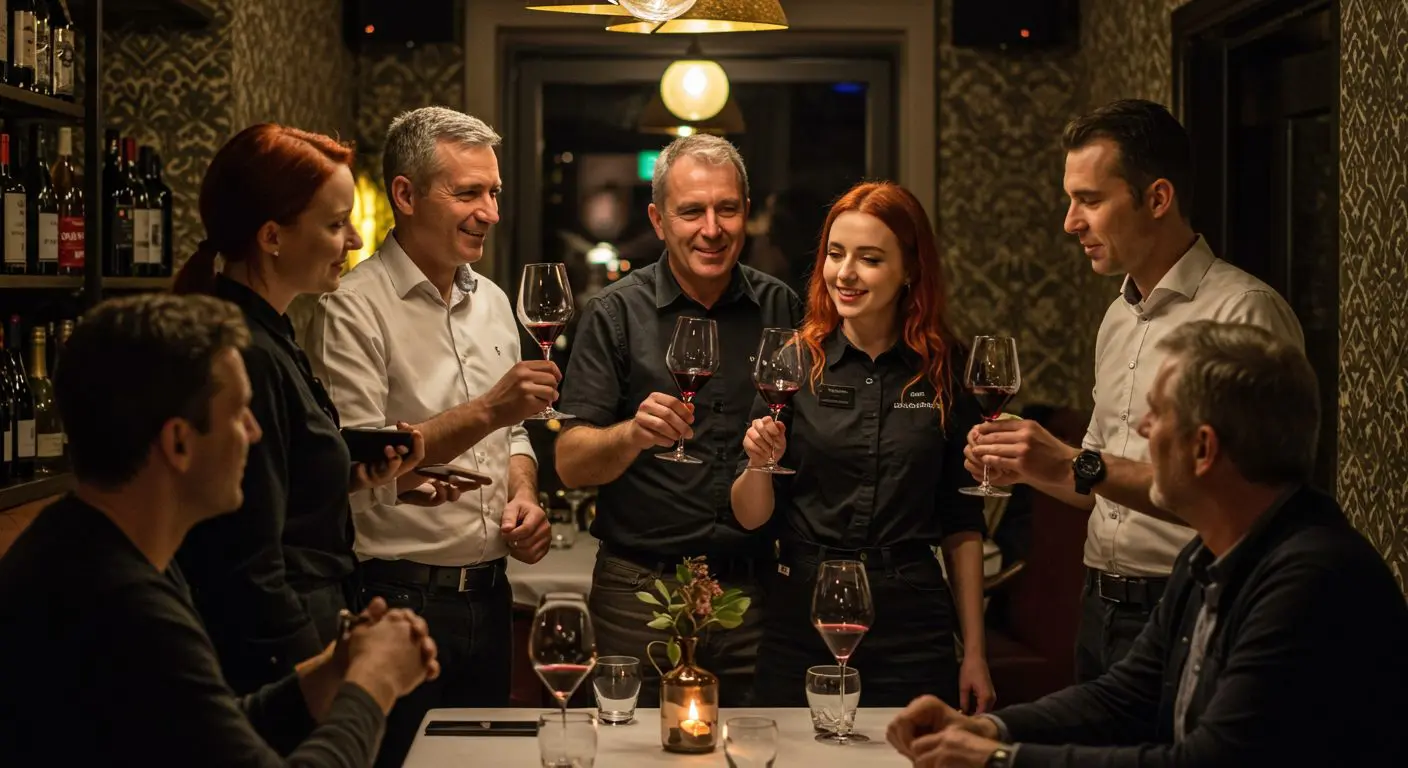
Perhaps the most concerning red flag when hiring restaurant sommeliers is resistance to continued education. The wine world constantly evolves with new regions, techniques, and trends emerging regularly. A sommelier who has stopped learning will quickly become outdated and ineffective. During interviews, ask candidates about recent wine discoveries or emerging regions they’re excited about.
Professional growth requires humility and curiosity. The best sommeliers never stop studying and tasting. They attend trade tastings, follow industry publications, and seek out new wine experiences. A candidate who shows little interest in expanding their knowledge will struggle to keep your wine program fresh and relevant. Access to quality sommelier study materials is essential for continuous professional development.
📌 Clues They’ve Stopped Growing:
- Unable to discuss recent industry developments or trends
- No participation in tastings or wine education events
- Overly rigid opinions about wine styles or regions
- Dismissive of customer feedback or changing preferences
✅ Top Traits to Prioritize:
- Regular participation in industry tastings and events
- Subscriptions to wine publications and resources
- Demonstrates curiosity about emerging wine regions and styles
- Continues pursuing higher levels of certification
Selecting the Right Wine Professional for Your Restaurant
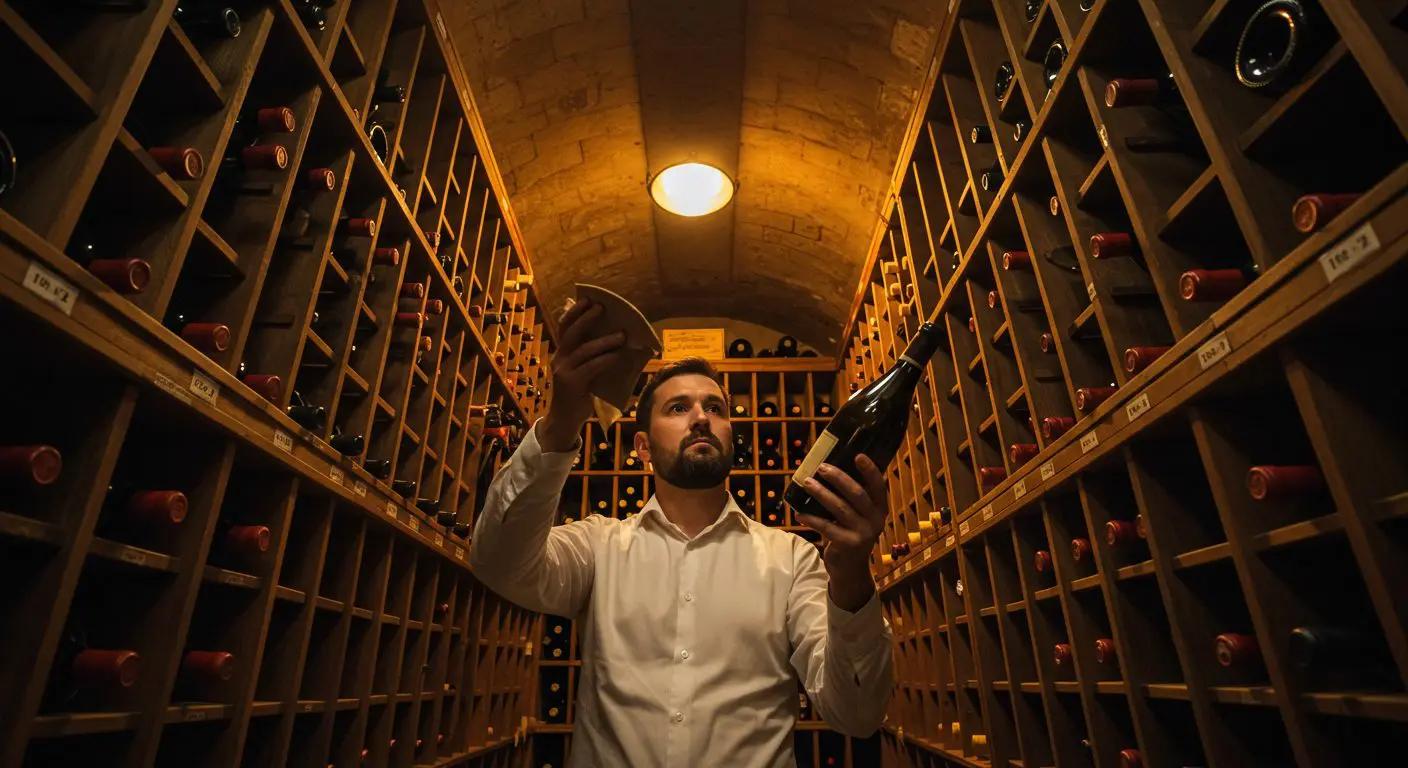
Recognizing these red flags when hiring restaurant sommeliers will save your establishment from costly mistakes and disappointment. The right sommelier acts as both a brand ambassador and a crucial revenue driver for your business. Take your time during the hiring process, checking references thoroughly and conducting practical assessments that test both knowledge and service skills.
Remember that technical wine knowledge, while important, is only part of what makes a great sommelier. Equally vital are communication abilities, hospitality mindset, and genuine passion for creating memorable guest experiences. When you find a candidate who demonstrates solid wine knowledge without the warning signs we’ve discussed, you’ve likely discovered someone who will become an invaluable asset to your restaurant team.
For restaurant owners and managers navigating the hiring process, understanding these red flags when hiring restaurant sommeliers is just the beginning. Continue learning about wine service standards and building relationships with wine professionals in your community. With careful vetting and attention to these warning signs, you’ll build a wine program that delights your guests and contributes significantly to your restaurant’s success and reputation.




